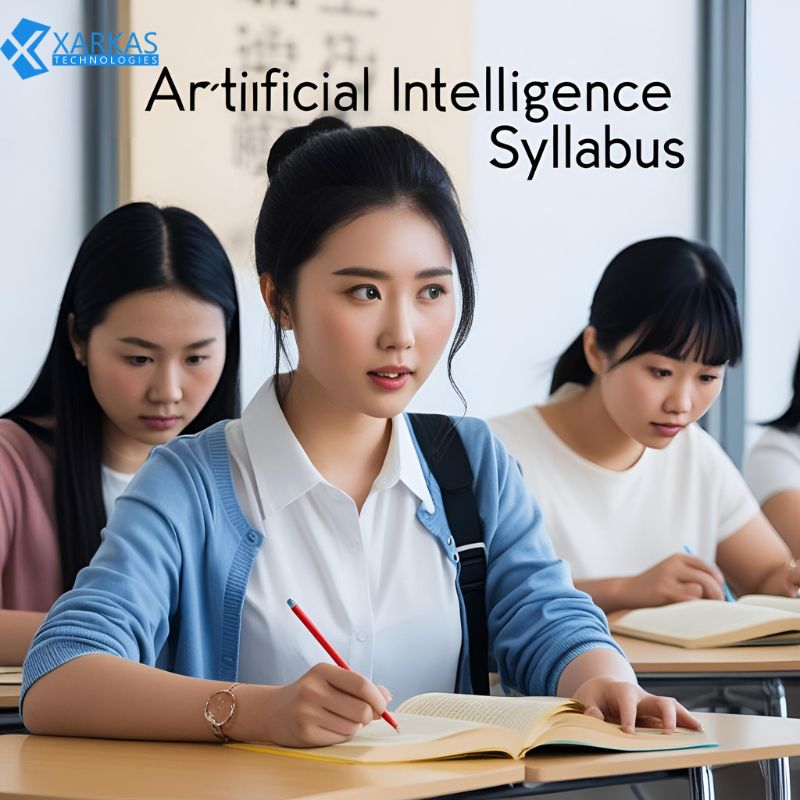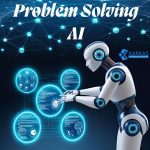
Artificial Intelligence Syllabus: Complete Course Structure (UG/PG/PhD)
Introduction: Why Study AI ?
Artificial Intelligence has transformed from an elective to a core discipline, with the global AI education market projected to reach $20 billion by 2025 (Research and Markets). Whether you’re pursuing a degree, certification, or self-study, this 1,000-word syllabus guide covers:
Table Of Content
- Introduction: Why Study AI ?
- 1. Undergraduate AI Syllabus (B.Tech/BSc CS)
- Core Subjects (Semester-wise Breakdown)
- 2. Postgraduate AI Syllabus (MTech/MSc)
- Specialization Tracks
- A. Machine Learning Engineering
- B. Natural Language Processing
- C. Computer Vision
- 3. PhD Research Areas (2024 Focus)
- 4. Best AI Certifications & MOOCs
- 5. Emerging Topics Now in Syllabi
- 6. University vs. Self-Study Path
- 7. FAQs About AI Education
- Conclusion: Start Your AI Journey

✔ Undergrad (BTech/BSc) AI syllabus
✔ Postgrad (MTech/MSc) specialization tracks
✔ PhD research areas
✔ Best MOOCs & certifications
✔ Emerging topics like GenAI and AI ethics
1. Undergraduate AI Syllabus (B.Tech/BSc CS)
Core Subjects (Semester-wise Breakdown)
| Semester | Subject | Key Topics |
|---|---|---|
| 3rd | Mathematics for AI | Linear Algebra, Probability, Calculus |
| 4th | Python Programming | NumPy, Pandas, OOPs |
| 5th | Machine Learning | Supervised/Unsupervised Learning |
| 6th | Deep Learning | CNNs, RNNs, Transformers |
| 7th | NLP/Computer Vision | BERT, YOLO, GPT Basics |
| 8th | Capstone Project | AI Model Deployment |
Labs:
-
TensorFlow/PyTorch
-
OpenAI Gym (Reinforcement Learning)
2. Postgraduate AI Syllabus (MTech/MSc)
Specialization Tracks
A. Machine Learning Engineering
-
Advanced Algorithms (SVMs, XGBoost)
-
MLOps (MLflow, Kubeflow)
B. Natural Language Processing
-
LLM Architectures (GPT-4, Llama 3)
-
Voice AI (Whisper, Transformer ASR)
C. Computer Vision
-
Multimodal AI (CLIP, Stable Diffusion)
-
Edge AI (TensorFlow Lite)
Thesis Requirement: 6-month industry/academic project
3. PhD Research Areas (2024 Focus)
-
Neuro-Symbolic AI
-
AI Safety & Alignment
-
Quantum Machine Learning
-
Generative AI Governance
Methodology Courses:
-
Research Paper Writing (ACL/NeurIPS standards)
-
Experimental Design
4. Best AI Certifications & MOOCs
| Course | Provider | Duration |
|---|---|---|
| AI Engineering | IBM (Coursera) | 6 months |
| TensorFlow Developer | 3 months | |
| GenAI Specialization | DeepLearning.AI | 2 months |
Cost: Free to $500 (financial aid available)
5. Emerging Topics Now in Syllabi
-
Large Language Models (LLMs)
-
AI Ethics & Bias Mitigation
-
Robotics Process Automation
Tools Added in 2025:
-
Hugging Face Transformers
-
LangChain for AI apps
6. University vs. Self-Study Path
| Factor | University | Self-Study |
|---|---|---|
| Cost | 10K−50K/year | Free-$1K |
| Structure | Fixed syllabus | Flexible |
| Networking | Campus placements | Online communities |
7. FAQs About AI Education
Q1: Can I learn AI without math?
A: No—linear algebra, calculus, and stats are essential.
Q2: Best programming language for AI?
A: Python (used in 90% of courses).
Q3: PhD vs industry certifications?
A: PhD for research roles, certs for engineering jobs.
Conclusion: Start Your AI Journey
Whether pursuing a degree or self-study, focus on:
✅ Strong math/programming basics
✅ Hands-on projects (GitHub portfolio)
✅ Specialization after fundamentals







No Comment! Be the first one.